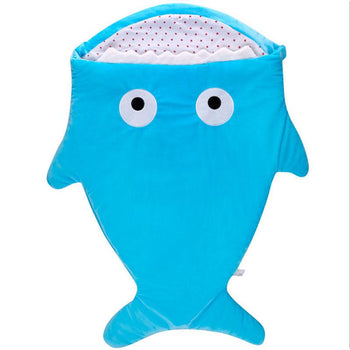If you have a toddler at home, you know that their behavior can often seem completely crazy. Whether it's running around naked, eating the dog's food or peeing in his dresser drawer (yes, that happened to me...). Toddlers tend to act in ways that make even the most experienced parents shake their heads and say, "What?!".
It's sometimes difficult to distinguish between "normal" toddler behavior and behavior that signals a bigger problem or deeper issue. This may be especially true when it comes to our toddlers' sleeping habits. Your child may have big temper tantrums every night before bed. Or your little girl is plagued with nightmares that prevent her from getting a good night's sleep.
Some children throw big temper tantrums every night before going to bed; others pass the day without incident, but are so nervous at bedtime that they cannot calm down enough to fall asleep; still others seem on the verge of developing real anxiety or even behavioral problems because of their refusal to stay in bed or to fall asleep throughout the night.
What is considered "normal" bedtime behavior for a toddler, and what is a sign of serious sleep problems?
Typical toddler behaviors
First, let's see what types of behaviors are considered typical of toddlers:
Your child throws temper tantrums
Most toddlers throw tantrums from time to time as they learn to express their feelings and develop their own opinions. Between 18 and 24 months, our toddlers begin to better understand the world around them, but they may not yet have the intellectual or verbal skills to communicate with us . This can result in temper tantrums when things don't go their way.
Temper tantrums before bedtime can also be normal for some toddlers. They may not like the idea of quitting play and doing something "boring" like going to bed.
Your child refuses to obey
Most toddlers go through a phase where they frequently throw tantrums. This is completely normal and usually indicates that the child is trying to exercise some control over their environment. If your child refuses to obey your instructions, don't worry, it's just a phase. The way your child tries to exert control is to shout "No!" and to refuse to obey all your requests.
Your toddler has nighttime fears and nightmares
It's normal for your toddler to start having a lot of nighttime fears . Your little one might suddenly want to sleep with the light on, or you might want to bar the closet door to avoid monsters. And it may be that at this point your child is starting to wake up at night having nightmares. This is a very common behavior in toddlers.
Your toddler is experiencing sleep regressions
There are two types of sleep regressions that you will encounter during your child's growing years: regression at 18 months and regression at two years . Both of these types of sleep regression can be attributed to your child's developmental milestones, and both are completely normal.
Regression at 18 months occurs when your child begins to walk or talk more, which means he needs to spend less time in bed because his body needs less rest due to these developments. The two-year regression usually occurs after a milestone event where children begin to sleep alone more often. Parents no longer have to get up at night for them! For some toddlers, this may seem like a relief compared to what they've experienced so far. For others, it can be very difficult to go to bed alone and make their days at school more difficult.
All of this is perfectly normal and you should not worry about your child's behavior.
Toddler Behaviors That May Signal a More Serious Sleep Problem
If your young child is having trouble sleeping, it may be due to a more serious underlying sleep problem. While normal naptime and bedtime behaviors can generally be ignored, some more serious issues should not be.
Here are some of the more serious issues that can indicate a sleep problem:
Your child does not sleep enough at night and during naps
Toddlers need lots of sleep, and it can be difficult to get them to bed at night and nap during the day. However, if your child is constantly sleep deprived , that's a problem. Toddlers should sleep 10 to 12 hours a night (depending on their age) and take one or two naps (at least an hour each) during the day. If your child regularly sleeps less than this, it can start to affect their growth, development and behavior.
This type of insomnia may be a sign of an underlying sleep problem (such as restless legs syndrome or sleep apnea). If you think an underlying medical problem is involved, take your child to see a medical professional.
Of course, this can be an indicator that your child needs some sleep training . If your little boy or girl has been waking up several times a night for years, it might be time to teach him how to sleep through the night. Many parents often think that when their babies grow up, their sleep problems will go away as well. However, this is not always the case. Sometimes some parents find that their children need sleep training to be able to get enough rest.
(Note that it's completely normal for your child to sleep less during a sleep regression. It's when your toddler regularly sleeps less than recommended that this becomes a problem.)
Your child has night terrors
Night terrors are common among toddlers , but they can be quite terrifying for parents. During a night terror, your child may seem awake (their eyes may be open or they may sit up in bed and scream), but you will find that they don't really "wake up". You may also be unable to comfort your child for the first few minutes of a night terror. These episodes can be as terrifying for parents as they are for toddlers.
Night terrors are terrifying for parents and children alike. It's not something you want to experience, but if your child's night terrors are rare, there's probably nothing to worry about. But if they occur regularly and prevent the child from sleeping well, it may be time to consult a health professional.
There is currently no cure for night terrors, but there are steps you can take at home to better manage and prevent them.
To learn more about night terrors click here
How do you know if your child's bedtime behavior is typical or not?
If you're trying to figure out if your child's behavior is "typical" or "not typical," ask yourself the following questions:
Does your child get enough sleep?
If the answer is yes, you can consider tantrums or bedtime disobedience to be a normal part of his behavior. Yes, it can make you feel bad, but it's probably nothing to worry about too much.
But if the answer is no, don't ignore the problem. You will need to take steps to help your child overcome their sleep issues and start getting the naps and nights they need.
Is it a phase?
If your child normally sleeps well, but has had a few days or weeks of insomnia, you can probably consider this to be a phase (especially if it's an 18 or 24 months; in which case, you are probably in the midst of sleep regression ). However, if your toddler's insomnia is a regular problem at home and has been going on for a long time, it's not a phase. Rather, it is a problem that needs to be corrected through sleep planning and learning
Is my parental instinct telling me something else is going on?
Moms and dads, listen up: your instincts are powerful. If you have a feeling that your child's trouble sleeping is due to something serious, or that it might be a medical problem, don't ignore it. Remember, you know your child better than anyone, so if you have concerns, act on them.
If your child's behavior falls into the "typical" category, don't worry too much. It's normal for toddlers to test boundaries and resist sleep . However, good discipline can help put your child on the path to good sleep habits. Try to establish routines and firmly enforce bedtime and naptime boundaries.
If your toddler's behavior falls into the "Not-so-typical" category, figure out what action you're going to take. If necessary, see a medical professional, especially if you know (or even suspect) that it is a medical problem. If you think the problem is not medical, but rather behavioral, take the first step towards better sleep for your child by implementing sleep training .
I hope you enjoyed this article, do not hesitate to share your experiences with us in the comments.
Do you know the perfect tool to help baby fall asleep? Click here to know more.
"Reader's special" offer
Get 30% off the entire collection
>>> Sleep <<<
(Sleeping bag, night light, blanket...and many other products to help baby sleep better)
Take advantage of this special offer with the code
DODO30
Do you want your baby to sleep through the night?
In this free guide , you'll discover 5 things you absolutely need to know.
With a unique approach and practical tools for success, this guide will help you and your baby sleep better through the night.








































